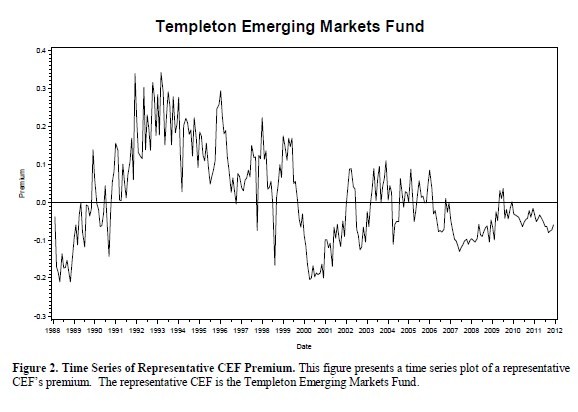Closed End Funds What Is A Closed End Fund
Post on: 24 Апрель, 2015 No Comment

Closed End Funds Produce Income But The Share Price Can Be Highly Volatile
Please refer to our privacy policy for contact information.
Closed end funds are different than open end mutual funds.
With an open end fund, as long as you want to buy shares, the management company will sell them to you. They will take your money, add it to the portfolio, and create more shares. You always buy shares of an open end fund from the fund company, never on the secondary market.
When a closed end fund starts, the company raises a set amount of money, and issues a specific number of shares. No new shares are created. Investors can buy the fund only on the secondary market, from someone else who is selling shares.
Once the initial money is raised, the fund manager manages the investments according to the fund’s goals and objectives. Closed end funds can be invested in equities or bonds.
Closed End Funds Can Be Income Producing
Many closed end funds pay monthly or quarterly dividends. They can be an attractive alternative for investors seeking income. However, the share price can be highly volatile.
Investors using closed end funds need to realize that although they may receive consistent income, their principal value may swing to extreme highs and lows.
Closed End Funds Use Leverage, Causing Them to Be Interest Rate Sensitive
The share price is so volatile because many closed end funds use leverage, or borrow against the fund, to buy more securities. The objective of this strategy is to increase the fund’s return, or the amount of income it pays out.
This use of leverage, or borrowed funds, causes closed end funds, like bonds, to be highly interest rate sensitive. When interest rates rise, the share price of closed end funds may go down. This is because investors anticipate that the fund will now have to pay a higher cost on its borrowed funds, and this higher interest rate cost is expected to lower the overall return of the fund.
Closed End Funds Can Trade at a Premium or a Discount
When a fund trades at a discount, it means when you buy a share, you are paying less than what the market value of all of the fund’s underlying investments are really worth.
When a fund trades at a premium, it means when you buy a share, you are paying more than what the market value of all of the fund’s underlying investments are really worth.
Closed end funds are best used as a complement to an overall income producing portfolio, or, for experienced investors only, by applying a disciplined trading strategy, which involves buying funds at a discount and selling them at a premium.
Do not confuse closed end funds with closed funds. When an open end mutual fund stops issuing shares, on a temporary or permanent basis, it will be said to be closed. At that point, you cannot buy shares of the fund; not on the secondary market or from the fund company.














